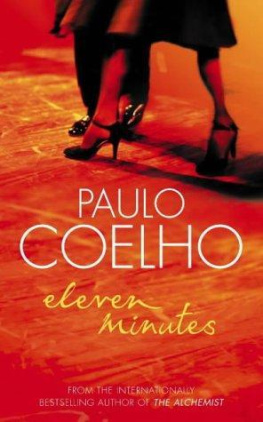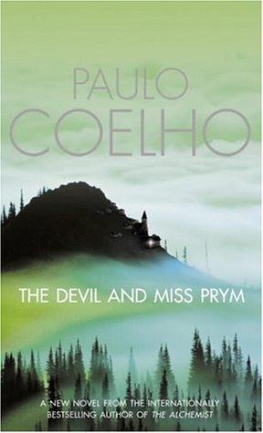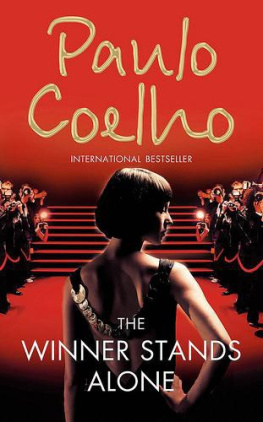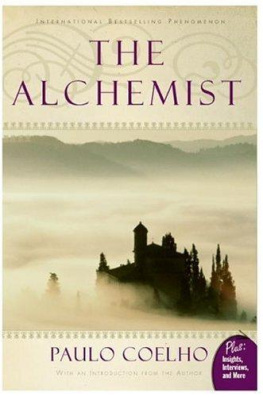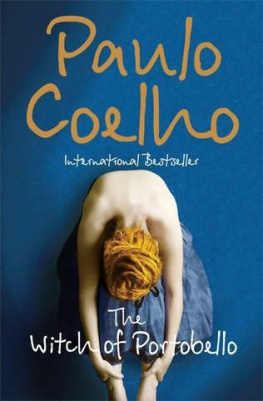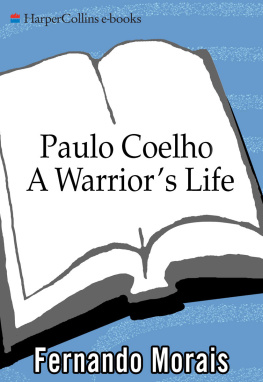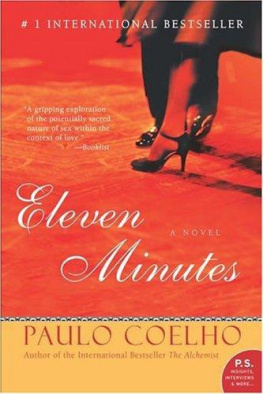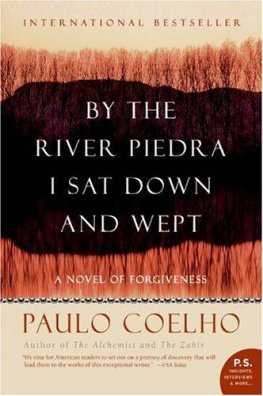Eleven Minutes
Eleven Minutes Coelho, Paulo
Luke
7''37-47
For I am the first and the last
I am the venerated and the despised
I am the prostitute and the saint
I am the wife and the virgin I am the mother and the daughter
I am the arms of my mother
I am barren and my children are many
I am the married woman and the spinster
I am the woman who gives birth and she
who never procreated I am the consolation for the pain of birth
I am the wife and the husband
And it was my man who created me
I am the mother of my father
I am the sister of my husband
And he is my rejected son
Always respect me For I am the shameful and the magnificent one
Hymn to Isis, third or fourth century BC, discovered in Nag Hammadi.
Once upon a time, there was a prostitute called Maria. Wait a minute. 'Once upon a time' is how all the best children's stories begin and 'prostitute' is a word for adults. How can I start a book with this apparent contradiction? But since, at every moment of our lives, we all have one foot in a fairy tale and the other in the abyss, let's keep that beginning.
Once upon a time, there was a prostitute called Maria. Like all prostitutes, she was born both innocent and a virgin, and, as an adolescent, she dreamed of meeting the man of her life (rich, handsome, intelligent), of getting married (in a wedding dress), having two children (who would grow up to be famous) and living in a lovely house (with a sea view). Her father was a travelling salesman, her mother a seamstress, and her hometown, in the interior of Brazil, had only one cinema, one nightclub and one bank, which was why Maria was always hoping that one day, without warning, her Prince Charming would arrive, sweep her off her feet and take her away with him so that they could conquer the world together.
While she was waiting for her Prince Charming to appear, all she could do was dream. She fell in love for the first time when she was eleven, en route from her house to school. On the first day of term, she discovered that she was not alone on her way to school: making the same journey was a boy who lived in her neighbourhood and who shared the same timetable. They never exchanged a single word, but gradually Maria became aware that, for her, the best part of the day were those moments spent going to school: moments of dust, thirst and weariness, with the sun beating down, the boy walking fast, and with her trying her hardest to keep up. This scene was repeated month after month; Maria, who hated studying and whose only other distraction in life was television, began to wish that the days would pass quickly; she waited eagerly for each journey to school and, unlike other girls her age, she found the weekends deadly dull.
Given that the hours pass more slowly for a child than for an adult, she suffered greatly and found the days far too long simply because they allowed her only ten minutes to be with the love of her life and thousands of hours to spend thinking about him, imagining how good it would be if they could talk. Then it happened.
One morning, on the way to school, the boy came up to her and asked if he could borrow a pencil. Maria didn't reply; in fact, she seemed rather irritated by this unexpected approach and even quickened her step. She had felt petrified when she saw him coming towards her, terrified that he might realise how much she loved him, how eagerly she had waited for him, how she had dreamed of taking his hand, of walking straight past the school gates with him and continuing along the road to the end, where - people said there was a big city, film stars and television stars, cars, lots of cinemas, and an endless number of fun things to do. For the rest of the day, she couldn't concentrate on her lessons, tormented by her own absurd behaviour, but, at the same time, relieved, because she knew that the boy had noticed her too, and that the pencil had just been an excuse to start a conversation, because when he came over to her, she had noticed that he already had a pen in his pocket. She waited for the next time, and during that night - and the nights that followed - she went over and over what she would say to him, until she found the right way to begin a story that would never end.
But there was no next time, for although they continued to walk to school together, with Maria sometimes a few steps ahead, clutching a pencil in her right hand, and at other times, walking slightly behind him so that she could gaze at him tenderly, he never said another word to her, and she had to content herself with loving and suffering in silence until the end of the school year.
During the interminable school holidays that followed, she woke up one morning to find that she had blood on her legs and was convinced she was going to die. She decided to leave a letter for the boy, telling him that he had been the great love of her life, and then she would go off into the bush and doubtless be killed by one of the two monsters that terrorised the country people round about: the werewolf and the mula-sem-cabega (said to be a priest's mistress transformed into a mule and doomed to wander the night). That way, her parents wouldn't suffer too much over her death, for, although constantly beset by tragedies, the poor are always hopeful, and her parents would persuade themselves that she had been kidnapped by a wealthy, childless family, but would return one day, rich and famous, while the current (and eternal) love of her life would never forget her, torturing himself each day for not having spoken to her again.
She never did write that letter because her mother came into the room, saw the bloodstained sheets, smiled and said:
'Now you're a young woman.'
Maria wondered what the connection was between the blood on her legs and her becoming a young woman, but her mother wasn't able to give her a satisfactory explanation:
she just said that it was normal, and that, from now on, for four or five days a month, she would have to wear something like a doll's pillow between her legs. Maria asked if men used some kind of tube to stop the blood going all over their trousers, and was told that this was something that only happened to women.
Maria complained to God, but, in the end, she got used to menstruating. She could not, however, get used to the boy's absence, and kept blaming herself for her own stupidity in running away from the very thing she most wanted. The day before the new term began, she went to the only church in town and vowed to the image of St Anthony that she would take the initiative and speak to the boy.
The following day, she put on her smartest dress, one that her mother had made specially for the occasion, and set off to school, thanking God that the holidays had finally ended. But the boy did not appear. And so another agonising week passed, until she found out, through some schoolfriends, that he had left town.
'He's gone somewhere far away,' someone said.
At that moment, Maria learned that certain things are lost forever. She learned too that there was a place called 'somewhere far away', that the world was vast and her own town very small, and that, in the end, the most interesting people always leave. She too would like to leave, but she was still very young. Nevertheless, looking at the dusty streets of the town where she lived, she decided that one day she would follow in the boy's footsteps. On the nine Fridays that followed, she took communion, as was the custom in her religion, and asked the Virgin Mary to take her away from there.
She grieved for a while too and tried vainly to find out where the boy had gone, but no one knew where his parents had moved to. It began to seem to Maria that the world was too large, that love was something very dangerous and that the Virgin was a saint who inhabited a distant heaven and didn't listen to the prayers of children.

